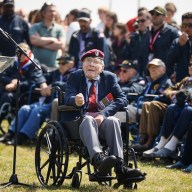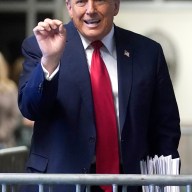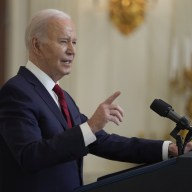By Scott Malone
BOSTON (Reuters) – A friend of the accused Boston Marathon bomber convicted of obstructing the investigation into the deadly blasts may be exonerated due to a Supreme Court decision in an unrelated case, one of his attorneys said on Wednesday. A U.S. jury in July found Kazakh exchange student Azamat Tazhayakov guilty of obstruction of justice for removing a backpack containing empty fireworks shells from Dzhokhar Tsarnaev’s dorm room at the University of Massachusetts in Dartmouth three days after the April 15, 2013, attack. But in November, U.S. District Judge Douglas Woodlock warned the Tazhayakov verdict could be called into question when the U.S. Supreme Court ruled on a case involving a Florida fisherman who was convicted of tampering with evidence for disposing of undersized red grouper fish. The high court on Wednesday overturned that conviction.
“I think Mr. Tazhayakov has a very good chance of being exonerated,” said attorney Nicholas Wooldridge. “I’m ready to buy the champagne but not to pop the cork.”
Woodlock wrote in a November order delaying sentencing for both Tazhayakov and fellow Kazakh exchange student Dias Kadyrbayev, who pleaded guilty to the same charge, that both Tazhayakov’s conviction and Kadyrbayev’s plea could be affected by the Supreme Court’s decision. Attorneys for Kadyrbayev did not immediately respond to a request for comment.
An obstruction of justice conviction carries up to a 20-year prison sentence.
At the time of Tazhaykov’s conviction, his attorneys called the decision unfair, saying it reflected a high level of emotion in the city that was the site of the largest mass-casualty attack on U.S. soil since Sept. 11, 2001. Neither of the two men were charged with having played any role in the attack, which killed three people and injured 264.
Jury selection is currently underway for Tsarnaev’s trial on charges tied to the attack. He could face the death penalty if convicted.
The case of a third college friend of Tsarnaev’s, Robel Phillipos of Cambridge, Massachusetts, who was convicted in October of the lesser charge of lying to investigators would not be affected by the Supreme Court’s ruling, Woodlock wrote in November. Attorneys for Phillipos rejected that assertion, saying they believed Wednesday’s decision also made their client’s conviction questionable.
“The decision will have significant bearing in Robel Phillipos’ case as it relates to the materiality of the alleged false statements,” attorneys Derege Demissie and Susan Church wrote in a statement. (Editing by Tom Brown and Eric Walsh)


















